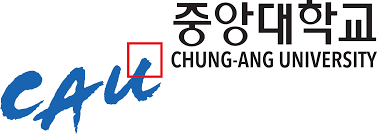Francesco Piccialli (University of Naples Federico II, Italy)

Bio:
Francesco Piccialli is a research fellow in Computational and Computer Science. His research interests are focused on what is nowadays called the Future Internet (FI), and in particular of its most challenging components like the Internet of Things (IoT) and Internet of Services (IoS). Consequently, a topic of his research is certainly that of the Smart environments and Sensor Networks, which finalizes its application and study in the Cultural Heritage field.
He currently works with the DMA and DIETI departments and of the Federico II University of Naples, Italy and with the CINI laboratory (Consorzio Interuniversitario Nazionale per l'Informatica) of the same university. He also collaborates with the High Technology District for Cultural Heritage in Regione Campania, Italy.
Title:
The Internet of Cultural Things: Towards an intelligent Cultural Heritage
Abstract:
Myunggwon Hwang (KISTI, Korea)

Bio:
Myunggwon received the B. Sc. Degree in Computer Engineering, the M. Sc. Degree in Computer Science, and the Ph. D. Degree in Computer Engineering from Chosun University, Korea. He is a senior researcher in Department of Software Research at Korea Institute of Science and Technology Information (KISTI). His research focuses on semantic information processing and retrieval, word sense disambiguation and business intelligence.
Title:
Medical Treatment Data Processing and National Disease Trends
Abstract:
We live in the intelligence age based on data. We have left almost all of records in data storage from everyday life such as what you eat, work for, drive, and even enjoy as your hobby to personally sensitive history like medical treatment, for instance. We call this kind of huge, various and continuous data, Big Data. The government, public organizations, and companies have been adopting this big data to understand current national issues, people’s demands, and lack of services for better society. Among many services, medical welfare is the most important thing we should figure out. In this talk, I will introduce national disease trends in various perspectives such as time series, regions, ages, and so on. We are going to know the development trends of diseases on the conditions of time, regions, and age groups respectively or simultaneously based on outcomes of processing medical treatment data. And finally I will include what we suggest data-driven medical evidence to national policy decision makers. These things will be dealt with in the talk.
Hyun-Jun Kim (VUNO, CSO, Korea)

Bio:
He is Researcher at SAIT, Samsung Elec., Ph.D candidate & BS in CS, Inha Univ., ML, Deep Learning, Computer Vision, Speech Recognition.
Hyunjun Kim had worked in Samsung Electronics about 10 years till 2014, solving many problems on consumer electronics. He has analyzed various data resulting from products or companies through machine learning technique, and contributed to their innovations by developing better products. He has also worked in Samsung Advanced Institute of Technology as a professional researcher for 5 years before VUNO, studying various interactions between smart-phones and users based on human emotions. Hyunjun has completed his computer science PhD in In-ha University 2009, and is currently working as CSO in VUNO to open up lots of opportunities to commercialize their cutting-edge technologies in medical and health-care fields.
Title:
Recent advances of deep learning in medical area
Abstract:
Deep learning technology as significantly improved its ability to analyze various types of data such as video, audio, and text. Deep learning has enabled structural ability to expand and be flexible as well as provision of abundant data. With a support of arithmetic infrastructure using GPGPU, deep learning expands to new areas that were considered impossible or inefficient to utilize. In this talk, we will take a look at the recent trend of how deep learning has developed in medical area.








































